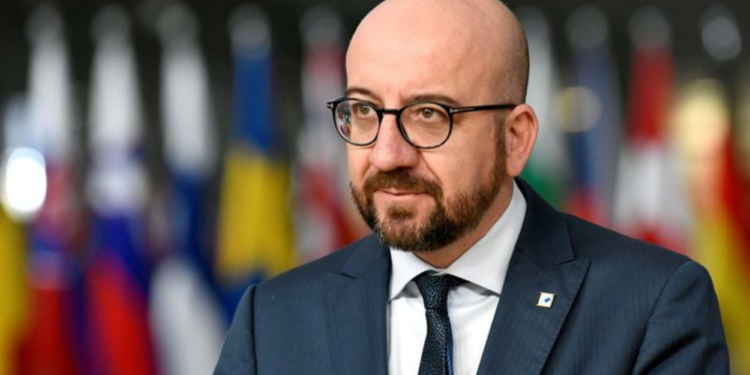Brussels (Brussels Morning.) – Belgian Prime Minister Alexander De Croo addresses escalating drug violence, advocating for stricter measures while some push for a reevaluation of drug policies emphasizing decriminalization and regulation.
“People who think that casual drug use is just an individual thing, that it has no effect on society, they’re wrong,” Belgian Prime Minister Alexander De Croo said in answer to a question from Media. De Croo was taking queries from journalists after a discussion of the National Security Council, during which officials determined to beef up the country’s security services. Shootings between drug squads have wounded half a dozen people in Brussels since February, with one police official killed in the southwestern city of Charleroi last week during a drug search.
“This is one of the reasons we have advanced [penalties for drug use] … think about all the blood that is connected to it,” De Croo stated, flanked by his ministers of the interior, justice and defence.
The EU has become the international capital of cocaine use in recent years, as record exhibitions in South America have matched with booming production across Europe. Belgium is a fundamental gateway, with the port city of Antwerp reporting as both the continent’s largest seizer and customer of the narcotic.
This has led to a wave in criminal violence, as gangs contend for access to the port and retail spots in municipalities like Brussels. Officers have mostly been left flat-footed, either driving for technical adjustments to port security or supporting harsher drug laws. De Croo has so far persisted in that vein, doubling down on banning. During the press conference, he pledged to expand the number of police and customs mechanisms and to better target users and vendors in marginalized neighbourhoods of Brussels. “Using drugs is a crime,” he stated.
Interior Minister Annelies Verlinden also suggested the negative health and environmental impacts of consuming cocaine, including in source nations. “I’ve been in Bolivia three, four weeks ago. And we have blown up a narcotic lab that was discovered by the Bolivian police,” she said. “People should realize that if you’re using drugs if you’re arguing for the legalization of drugs, that it will … contribute to the deforestation of the Amazon.”
However, some experts contend that the violence surrounding the drug business stems from its illegality, with governments putting a high-demand, zero-regulation market in criminal hands. A tiered licensing system could cut organized crime, decrease health problems from tainted and overly powerful implications, and expand millions in taxes for social and addiction programs, these critics say.
Colombian President Gustavo Petro called for a modification towards decriminalization and better regulation in March, declaring the war on drugs had “failed.” “The health of our communities is at stake. The threat posed by the use and misuse of illicit drugs, both natural and synthetic drugs, can only be mitigated by embracing a harm reduction policy,” he told a United Nations Commission.
Belgian Prime Minister Alexander De Croo’s firm stance on combating drug use reflects growing concerns over its societal impact. As violence escalates, there’s a call for stricter enforcement and broader awareness of the consequences, both domestically and globally. Yet, amidst the crackdown, voices advocating for a reevaluation of drug policies highlight the potential benefits of decriminalization and regulation. The challenge lies in finding a balanced approach that addresses public safety while addressing the root causes of drug-related issues.




